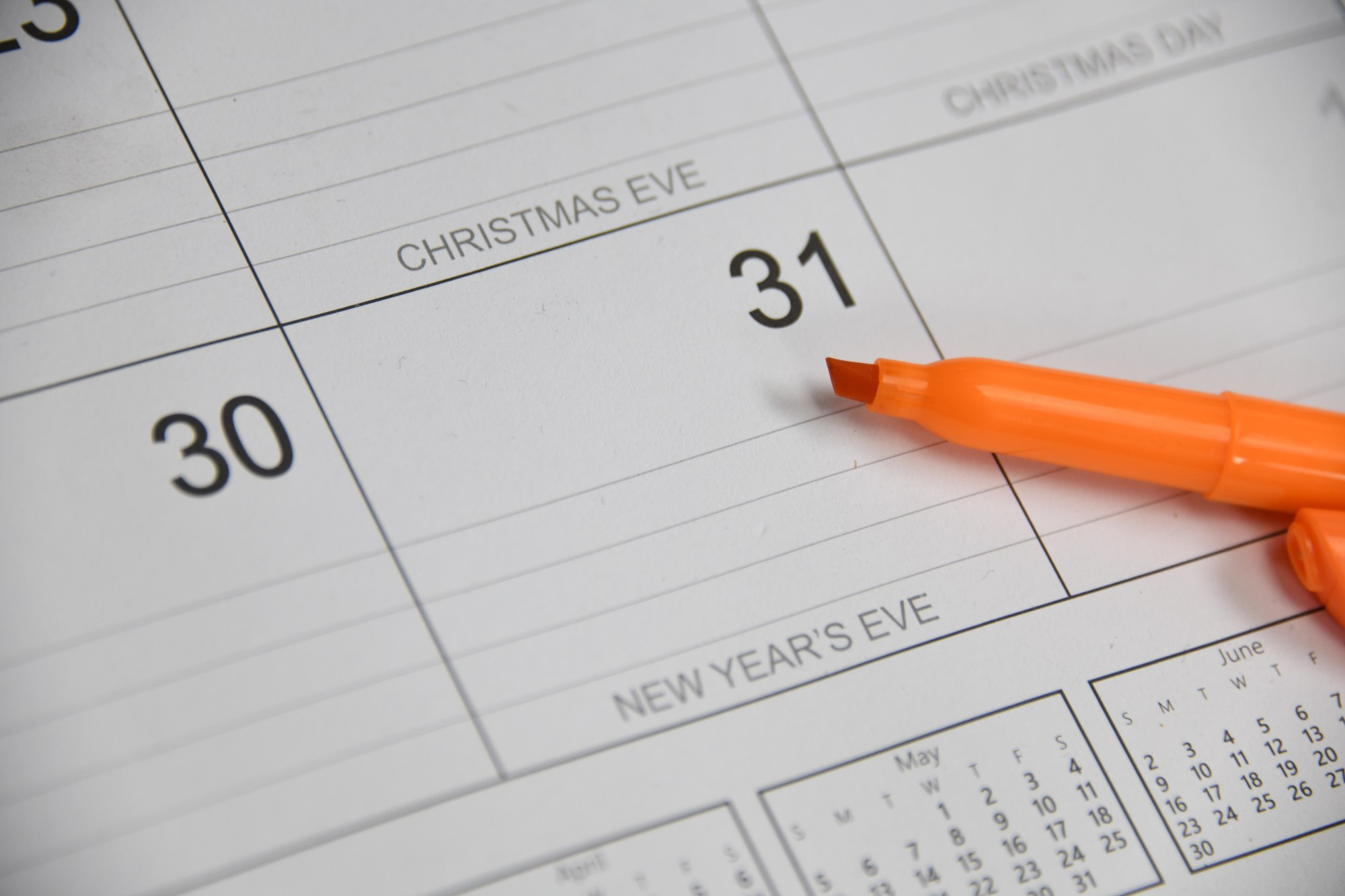One common firefighter schedule, the 24/48, is named for the rotating hours on and hours off. It requires a 24-hour shift followed by 48 hours off. Another common firefighter schedule is the 48/96, which means two days (48 hours) on and four days off. Both schedules do not repeat a block or cycle, chewing right through weekends, holidays, family events and other important dates. In this article, I’ll offer tips for organizing your family’s schedule, regardless of which type it is, to bring peace of mind to all.
1. Rely on a calendar as if your life depends on it.
In my home office, I keep a desk calendar in full view. My husband’s work days are highlighted with a simple swipe across the number in yellow and I do this for three months in advance in order to have this quick reference ready when needed. For example, if I’m making a dentist appointment for my husband over the phone and a specific date two months ahead is offered, a quick glance at the calendar gives me the “no” if it’s highlighted as a work day or a “yes, what time” if it’s not (and nothing else is penciled in for that day). I don’t have to mentally count forward or hope for the best (and cancel later!)

2. Keep all calendars synced.
Add an event or appointment into your phone calendar immediately upon writing it down onto a paper calendar, whether purse size or desktop. In other words, sync whatever calendars you use and don’t make any exceptions. If it gets put onto to desk calendar, it goes into the phone, or vice versa. If you aren’t sitting at a desk, use your phone or a purse calendar. Just make sure you’ve got a paper version and the electronic version on your phone so that you always have one within reach. When I’m done at my desk each workday, I double check that I’ve added everything into my phone before leaving my office.

3. Get a kitchen calendar that is visible with just a glance.
For years, when I juggled sports practices, appointments, games, and other events for my four young children, I made sense of our family’s busy life by using a 3 ft. x 4 ft. chalkboard mounted in the kitchen on a wall. It was divided into fourteen numbered squares (two weeks), starting with Monday at the far left. In addition to my husband’s days off, which were noted by a simple, large check mark next to the numerical date in each square, all scheduled activities were listed. If I was sitting at the table eating dinner and someone asked a question, like “Can we go to the movies Friday after school?” a quick glance was all I needed. Same if I was standing at the sink or stove. Each morning, I sat at the counter with my coffee and stared at the chalkboard to see what was coming at me and my family members that day, while easily being able to see the rest of the week. Having that visual reminder, even if you don’t realize you are looking at it, mentally reinforces your “to-dos.”

4. Learn to say “I’ll have to get back to you.”
This simple sentence will change your life (for the better) if you are new to wrangling a firefighter’s schedule, have children, or both. Unless you are 100% certain about the availability to accept an invitation or appointment, “maybe” is always the best answer. If saying no to people is hard, find the script that’s right for you, such as, “I’ll call you back” or “Maybe, I’ll get back to you” to bring you peace of mind. When you have time, and have the opportunity to check a calendar and make an informed decision in the privacy of your own mind, you can send a reply.
Learning to juggle a firefighter schedule is not rocket science, but it does require some fundamental practices and tools to do well.




